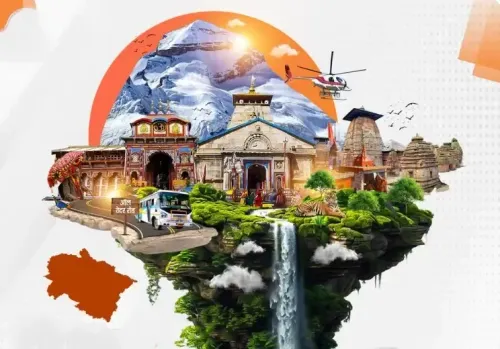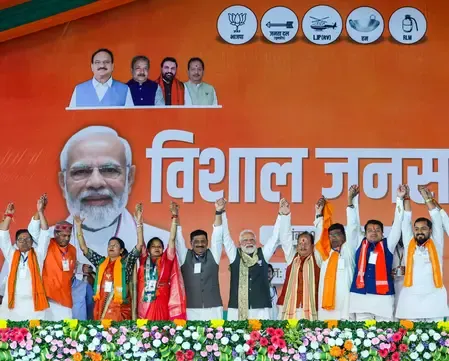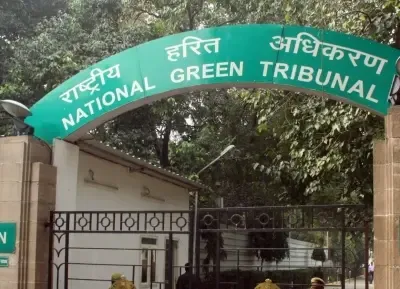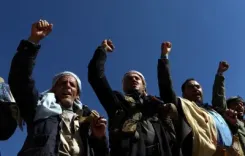Why Is Jharkhand Facing Disruptions Over Tribal Religious Sites?
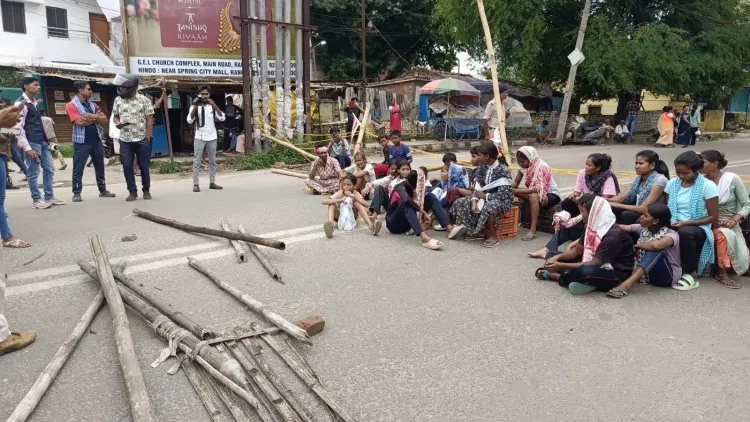
Synopsis
Key Takeaways
- The bandh was a response to encroachments on tribal religious sites.
- Significant disruptions occurred across multiple districts in Jharkhand.
- Protesters emphasize the need to safeguard their cultural heritage.
- The government faces criticism for its inaction regarding tribal concerns.
- Increased police presence was enacted to maintain order during the protests.
Ranchi, June 4 (NationPress) A state-wide bandh initiated by tribal organizations regarding matters related to traditional religious sites significantly affected daily life across Jharkhand on Wednesday, causing a halt in several districts of the state.
The bandh, orchestrated by groups such as Adivasi Bachao Morcha and Sirmatoli Bachao Morcha, was a response to the alleged illegal encroachment and construction activities around vital tribal religious sites, including the main Sarna Sthal in Ranchi.
Demands from protesters included the safeguarding of sacred areas like Marang Buru, Lugu Buru, Parasnath, Mudhar Hills (Pithoria), and Mahdani Sarna sites in Tamar and Bedo.
Throughout Ranchi and other districts such as Gumla, Ramgarh, Hazaribagh, Latehar, and East Singhbhum, supporters of the bandh obstructed highways and roads at various points, causing significant disruptions to traffic.
Major roadways affected included the Ranchi-Patna Road near Kuju (in Ramgarh district), where blockades began at 10 a.m., leading to extensive traffic jams; the NH-39 near Udaypura Chowk (in Latehar district), where vehicles were halted; and Toto village (10 km from Gumla), where routes to Gumla and Lohardaga were obstructed.
Additionally, protesters blocked areas such as Khelgaon Chauraha, Argora, Morhabadi, Kanke, Ormanjhi, Kadru, Tatisilve, Ratu, and Mandar in Ranchi district, using traditional weapons and sticks, setting up bamboo barricades, and burning tyres.
Numerous markets closed in various regions, with demonstrators marching through streets in places like Ghatshila, Chakulia, Galudih, and Baharagora in East Singhbhum, chanting slogans and compelling shop closures.
In response to the bandh, the state administration deployed over 2,000 police personnel in Ranchi alone, with increased patrols in sensitive areas to avert any disturbances.
While leading the protests in Ranchi, former minister Geetashree Oraon criticized the Hemant Soren-led government for neglecting tribal sentiments.
"The ramp of the flyover near the Sarna Sthal in Sirmatoli, Ranchi, has encroached upon our sacred site. Despite continuous protests since January, the government, which claims to support tribal welfare, has failed to take action," she stated.
Tribal organizations argue that the ongoing construction and infrastructure projects within the state are jeopardizing the sanctity and space of their centuries-old religious sites, which are essential to tribal culture and identity.

